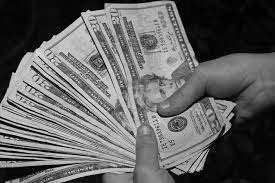By Harrison Leone
Assistant Sports Editor
The sports world is dying. The cultural and economic phenomenon that is American professional sports has entered the twilight of its existence, decaying into decadence for want of genuine substance.
You wouldn’t know it considering the multi-billion dollar television deals, the state-of-the-art stadiums springing up from South Beach to Seattle or the re-negotiated contracts that pay players the GDP of small countries. These trappings of obscene wealth, however, are symptomatic not only of unprecedented profits: they represent the final act of sports being an experience centered on the fan.
Sure, we’ll cough up $99 for an authentic Nick Foles jersey, fork over $13 for a sausage at Yankee Stadium and gladly open our wallets to pay $15 to park half a mile from the gates. The fan will gladly endure these expenditures, if only to see athletes perform for three hours. Now, the question is: to what extremes will the lust for revenue drive the billionaire team owners? And, equally salient, what extremes will the patrons be willing to endure?
Contemporary society has become drunk on sports. Leagues such as the MLB, the NFL and the NBA are witnessing profit margins never before thought possible. In 2012, baseball’s Dodgers were sold for a league-record $2.2 billion. The NFL particularly has evolved into a multibillion-dollar enterprise, collecting $9.5 billion in 2012. According to Forbes magazine, 41 of the world’s 50 most valuable sports franchises are American, including all 32 of the NFL teams.
As the dollars pour in, player salaries rise correspondingly. Joe Flacco offers the most recent example of these patently ludicrous sums of money when he signed a six-year contract worth $120 million, an NFL record. The aforementioned Dodgers recently bestowed upon Zack Grienke the largest contract, in terms of annual salary, ever given to a pitcher; Mr. Grienke will be handsomely compensated to the tune of $147 million in his deal.
This salary spike creates a cycle of greed that can only result in more money being sucked from the fan base at every possible turn, from higher ticket prices to exclusive TV deals and local market blackouts.
College sports are equally vulnerable to the allure of the dollar. The plague of conference realignment is in full swing, as money-hungry Athletic Directors feverishly sprint to the most profitable leagues at breakneck paces, happily discarding school traditions in the process. Gone are defining collegiate rivalries such as Syracuse-Georgetown, Colorado-Nebraska and Brigham Young-Utah. School presidents have no qualms about universities leaping from conference to conference, distorting competitive landscapes and ending storied matchups.
Owners, players and fans themselves are culpable in various degrees for the avarice that so permeates sports. It is no doubt wrong for the multi-million- and billionaire owners to charge such exorbitant fees and hand out such staggering contracts. Players abandon hometown fan bases and act like petulant brats if denied what they consider their rightful payments. If the market did not bear these expenses, however, then a level of economic sanity could return. It is therefore the fan’s responsibly to no longer so blindly squander their money to line the coffers of the sports elite.




